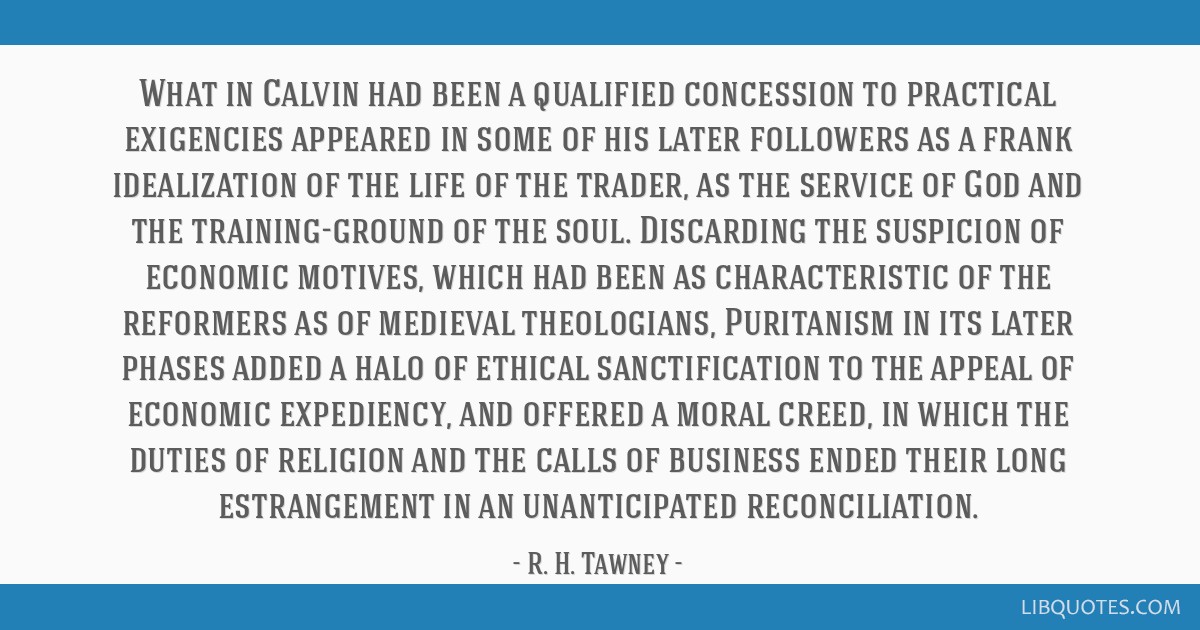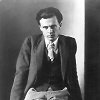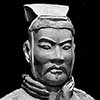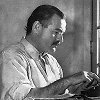What in Calvin had been a qualified concession to practical exigencies appeared in some of his later followers as a frank idealization of the life of the trader, as the service of God and the training-ground of the soul. Discarding the suspicion of economic motives, which had been as characteristic of the reformers as of medieval theologians, Puritanism in its later phases added a halo of ethical sanctification to the appeal of economic expediency, and offered a moral creed, in which the duties of religion and the calls of business ended their long estrangement in an unanticipated reconciliation.
pp. 239-240 - Religion and the Rise of Capitalism (1926)























